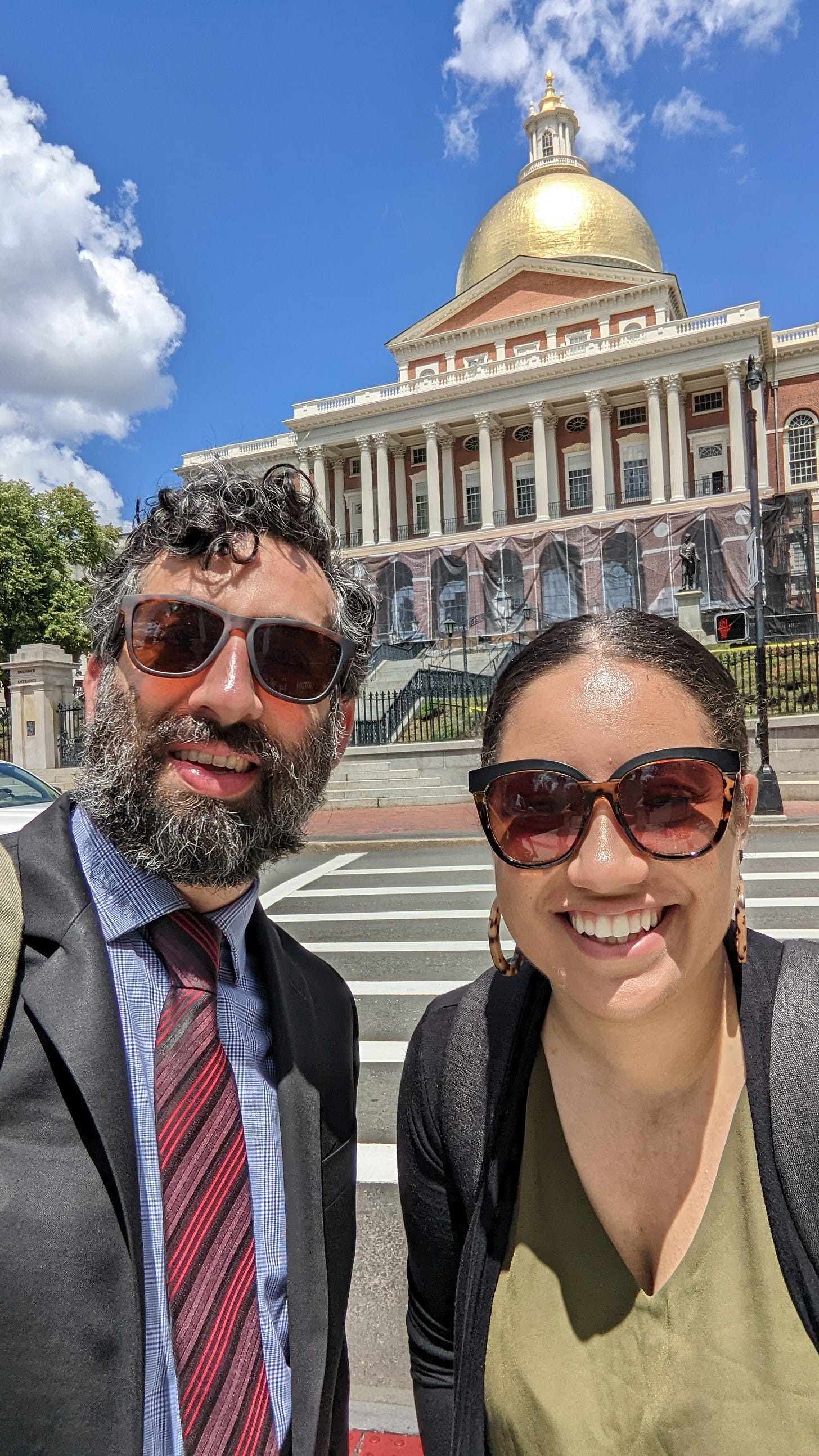Future murky for downtown Boston mega project | After illegal strike, Newton teachers need a vacation, union chief says | Modest housing proposal sparks furious lobbying on Beacon Hill | Debate erupts over bias in mainstream media |
News tips? Story ideas? Email us at sbvanvoorhis@hotmail.com
Go figure: The humble granny flat has become a flash point in State House debate over multibillion-dollar housing bill
Gov. Maura Healey wants to go big and spend more than $4 billion to tackle the housing crisis.
But it is not the size of the proposal that’s proving controversial on Beacon Hill.
Rather, it’s a provision tucked into the governor’s sprawling bill that would make it easier to build accessory dwelling units - better know as in-law apartments or granny flats - that has become a significant bone of contention.
Along with oodles of money for new housing, the governor’s plan would also enable homeowners across the state to build these modest additions or standalone backyard cottages without getting tangled in red tape.
But some state lawmakers and local officials are pushing back against having a single state standard, arguing that cities and towns should have the authority to craft their own rules when it comes the building of accessory dwelling units, or ADUs.
“Language contained in the legislation would undermine and confuse these local zoning ordinances and authority,” wrote Sen. Ed Kennedy Jr., in a letter obtained by Contrarian Boston, to the co-chairs of the Legislature’s key housing committee.
“Local officials need resources, tools, incentives, and flexibility to successfully deliver a community-driven vision for zoning and planning rather than a broad state-imposed mandate,” the Lowell Democrat opined.
The Massachusetts Municipal Association is also weighing in against the proposal, warning that it could create confusion and frustration for communities that have already developed their own ADU, rules, wrote Adam Chapdelaine, the MMA’s executive director and CEO, in a letter to state legislative leaders.
“We oppose the unilateral preemption of local zoning and the one-size-fits-all mandate in this legislation,” Chapdelaine stated.
However, critics looking to take the ax to the granny flat proposal will face some significant opposition, contends Jesse Kanson-Benanav, executive director of Abundant Housing Massachusetts.
An array of business and housing advocacy groups have lined up behind Healey’s housing bill and the proposal to make it easier for homeowners to build in-law apartments.
By clarifying and streamlining the rules, the governor’s housing bill could fuel the construction of thousands of new additions and small, backyard units across the state, Kanson-Benanav contends.

Clear and predictable rules could enable smaller builders to specialize in granny flats, something that would be difficult to do now given the wide variation in what is allowed from town to town.
Yet to date, mishmash of local rules and regulations has resulted in only a handful of these ADUs being built across the state.
“The proof is in the numbers,” Kanson-Benanav said.
Radio silence: Despite some initial fanfare, plans to redevelop one of Boston’s most controversial buildings go quiet
The redevelopment of the Hurley state office building, a massive icon of Brutalist architecture near Government Center, looks to be going nowhere fast.
Nearly two years after splashy rollout, Leggat McCall has yet to submit its $1 billion proposal to transform the Hurley to Boston City Hall for review, the first step for any major project.
And a key element of the development firm’s plan, which calls for renovating the early 1970s concrete monolith and placing two towers atop it, is “no longer viable,” one veteran Boston area developer, not connected with the plan, told Contrarian Boston.
In particular, one of the two towers was to be expensive lab space. But that market, red hot two years ago, has since imploded, with empty research complexes having opened up across Greater Boston amid a surge of speculative development.
Keep reading with a 7-day free trial
Subscribe to Contrarian Boston to keep reading this post and get 7 days of free access to the full post archives.




